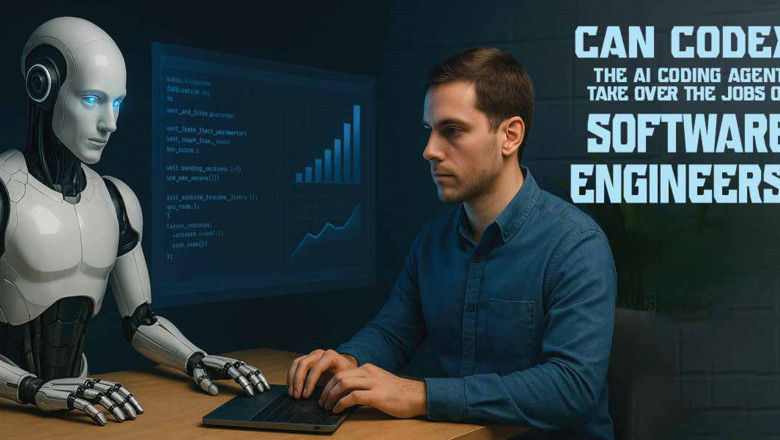views
Introduction: The Rise of AI in Software Development
Artificial Intelligence (AI) is currently the most disruptive technology in tech, and OpenAI Codex, the powerful AI coding agent, is at the forefront. Built on the same tech powering ChatGPT, Codex can write code, build applications, and automate mundane programming tasks. But the question on every programmer's mind is: Can OpenAI Codex substitute for software engineers?
Let's dive deep into this groundbreaking tech and explore its impact on software engineering careers.
What Is OpenAI Codex?
OpenAI Codex is a powerful AI model that has been trained on billions of lines of public code in repositories like GitHub. It is able to read natural language and translate it into working code in various programming languages, such as Python, JavaScript, Java, and more. From developing simple scripts to generating full-fledged apps, Codex acts like an amplified coding assistant.
Major Features:
-
Autocompletes code according to context
-
Translates plain English into working code
-
Generates boilerplate and redundant code skeletons
-
Builds websites, games, and even APIs from scratch
Will Codex Replace Software Engineers?
Short answer: No way. But it will radically change the way developers develop.
1. Automation of Repetitive Work
Codex excels at automating boring tasks like generating test cases, boilerplate code, and API wrapping. This frees engineers to focus on higher-level logic and design decisions.
2. Prototyping and MVP Creation Much Faster
Startups and small teams can use Codex to speed up prototyping. It allows solo founders or junior engineers to make things happen without needing a big engineering organization.
3. Skill Enhancement, Not Replacement
For experienced developers, Codex is an accelerator, not a replacement. It's a syntax assistant that suggests better code patterns, even for debugging—it's like having a live pair programmer.
Limitations of Codex: Why Human Engineers Still Matter
Despite its prowess, Codex has major flaws:
-
Does Not Understand Deep Context: It cannot fully grasp business logic or domain complexity.
-
Error-Prone for Hard Cases: Codex can produce buggy or vulnerable code without human oversight.
-
No Architectural Choices: AI is still not capable of writing scalable systems or trade-offs in architectural design.
Software development isn't all about writing code—it's about solving problems, collaborating with others, and releasing maintainable, secure code. AI can't replace those qualities of human-ness, at least not today.
The Future: Human-AI Partnership in Software Engineering
Rather than replacing jobs, OpenAI Codex will redefine them. What software engineers do will shift from being code writers to AI-powered problem solvers. Developers will need to adapt, learning how to operate in concert with AI tools.
Just like calculators did not render mathematicians redundant, Codex will not render software engineers redundant. It will, however, become the essential tool for every developer.
Conclusion: Adapt, Don't Fear
OpenAI Codex is a gigantic leap forward in development by AI, but it's not a killer project—because it's a game-changer. Codex offers excellent opportunities to get smarter and faster for those willing to evolve with the technology. The future isn't about AI vs engineers—but AI and engineers working together to build the future.















![What Is The QuickBooks Enterprise Support Number [[GET Quick Assistance]]](https://timessquarereporter.com/public/upload/media/posts/2025-06/04/what-is-the-quickbooks-enterprise-support-number-get-quick-assistance_1749095947-s.jpg)






Comments
0 comment